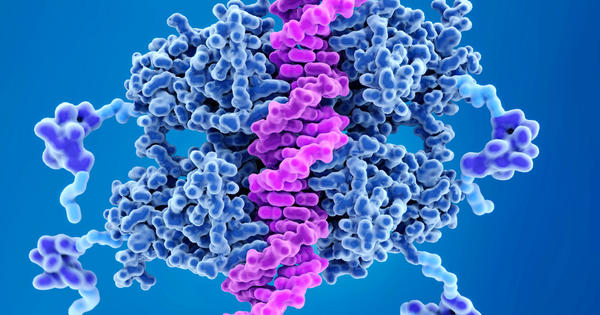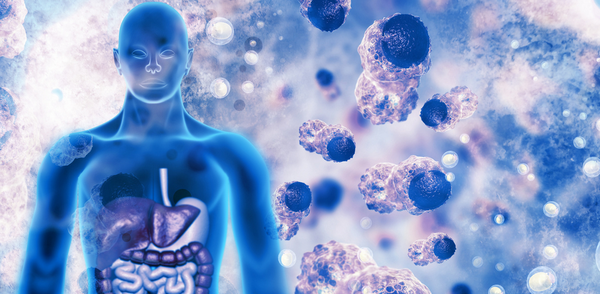In 10 seconds? Scientists have discovered several ways by which cancerous cells become dependent on copper and are digging into the details to see how this can be exploited to help cancer patients.
Copper? Do you mean the metal? That's the one! Beyond copper's instrumental role in advancing human toolmaking and technology, copper also plays an essential role in human health. Indeed, copper is a nutrient that is necessary for the proper functioning of various enzymes and the creation of hormones, neurotransmitters, and pigments. However, this is not your cue to start munching on pennies. This is because, in certain contexts, copper can be toxic and cause cells to die.
Yeah, I wasn’t about to start eating metal…But can you tell me what this has to do with cancer? Of course! It’s been recognized for over a century that copper levels tend to be higher in tumors than in healthy tissues. A growing body of research has shown that copper is implicated in certain modes of cell proliferation (AKA cell’s ability to multiply)—a key feature of cancerous cells. Experts have recognized that copper-dependent modes of cell proliferation are unique and have designated these methods “cuproplasia” (cupro=copper; plasia=(cell) proliferation or growth).
Interesting! Can this information help cancer patients? That’s the idea! Since copper participates in both cell growth and cell death, depending on the context, there are multiple opportunities for intervention to help treat cancer. For example, some drugs can elevate copper levels in cells, which could help kill cancerous cells. Alternatively, drugs that block copper from participating in cuproplasia could prevent copper from contributing to cancerous growth.
Sounds great in theory. But do these treatments work? Drugs that lower the level of copper in cells have been shown to inhibit cancer from forming new blood vessels—an essential aspect of cancer growth—but, so far, these drugs haven’t proven strong enough to cure cancer by themselves. To that end, scientists are drumming up multiple strategies that combine copper-targeting treatments with other drugs to boost their effectiveness.
So, do we have drugs on the market that make use of this discovery? Before answering that question, let me add that scientists have also created drugs that actually increase copper levels in cells to the point where they die. Laboratory studies in mice have shown that these drugs can successfully kill cancerous cells and prevent cancer from coming back. Furthermore, one early-stage clinical trial showed that these sorts of drugs can modestly prevent brain cancer progression when used in combination with chemotherapy drugs. Excitingly, these drugs seem to be very safe and well-tolerated by patients. But, to answer your question, no copper-acting drugs have been approved for use in cancer treatment to date. We must await more studies and clinical trials to see whether depleting or increasing copper levels will have a place in cancer treatment!
How does copper even get into the body?
Believe it or not, copper is ingested as part of a normal diet.
The recommended daily intake of copper is 0.9 mg for adults, which is usually met or exceeded by the typical Western diet.
Foods like shellfish, chocolate, nuts, and seeds are all rich in copper!
Dr. Talia Henkle has distilled 8 papers saving you 28 hours of reading time.
The Science Integrity Check of this 3-min Science Digest was performed by Flávia Oliveira Geraldes






